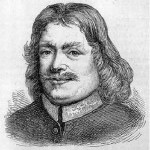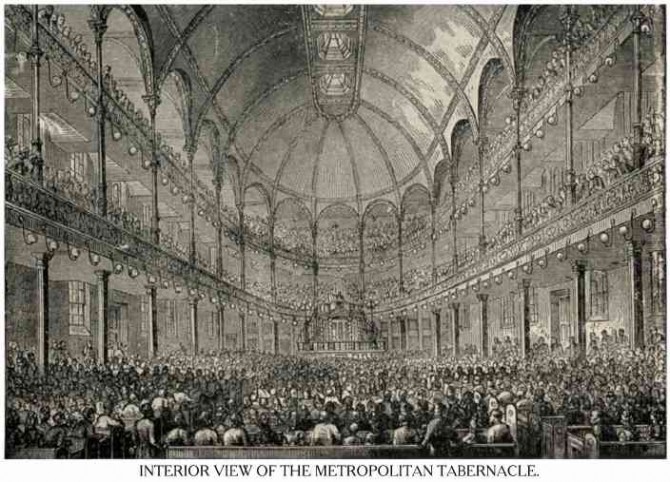They Couldn’t Have Known VII
From the very earliest days of my own journey following Jesus I have been strengthened and encouraged by the biographies of those who have gone before and done great exploits for God. I often wonder how any Christian today can hope to know God, understand the Bible, and have a chance at a solidly biblical worldview without an excellent working knowledge of church history and observing the patterns that God has followed again and again down through the centuries with His people.
 One of these luminaries that my mind often goes to is John Bunyan. But before we talk about Bunyan I must introduce you to three poor women sitting in the sun and knitting. The place was Bedford, England and the year was 1652. One of the women was Mary Fenne, another was called Norton, and the name of the last we don’t know. This day they were talking about their great love for Jesus and the unspeakable joy they shared in knowing Him and of His great love for them. As it happened in the providence of God a young tinker (repairer of pots and pans) was passing by and was arrested by their conversation. As he listened his heart was opened and a great hunger came over him to know this new birth that they spoke of. To him it seemed that they had the answer that for so long his heart had longed and he was so eager to hear more that they invited him to come the next day and speak with their pastor Dr. Gifford. That he did and thus began an incredible ripple in the kingdom of God. That young tinker of course was John Bunyan. Those precious daughters of God couldn’t have known what the Holy Spirit would do with their joyous sharing of their love for Jesus with a passing poor and uneducated tinker.
One of these luminaries that my mind often goes to is John Bunyan. But before we talk about Bunyan I must introduce you to three poor women sitting in the sun and knitting. The place was Bedford, England and the year was 1652. One of the women was Mary Fenne, another was called Norton, and the name of the last we don’t know. This day they were talking about their great love for Jesus and the unspeakable joy they shared in knowing Him and of His great love for them. As it happened in the providence of God a young tinker (repairer of pots and pans) was passing by and was arrested by their conversation. As he listened his heart was opened and a great hunger came over him to know this new birth that they spoke of. To him it seemed that they had the answer that for so long his heart had longed and he was so eager to hear more that they invited him to come the next day and speak with their pastor Dr. Gifford. That he did and thus began an incredible ripple in the kingdom of God. That young tinker of course was John Bunyan. Those precious daughters of God couldn’t have known what the Holy Spirit would do with their joyous sharing of their love for Jesus with a passing poor and uneducated tinker.
John Bunyan was discipled by Dr. Gifford and in a few years became known all over the counties surrounding his home for his powerful preaching. Soon however the government changed and his preaching was outlawed. He continued preaching anyhow and eventually was arrested and spent 12 years in prison. His first wife dead, he had recently remarried and his new wife was left to care for his four children. They suffered terribly and had to depend on the other poor Christian’s charity in their community. It was a terribly lonely time for Bunyan who once remarked, “I have but one Friend, but He is all sufficient.” Bunyan’s oldest daughter Mary was blind and when they would come to the prison to visit he said it was like “tearing the flesh from his bones” when he had to tell her goodbye each time. Bunyan could have been released at any time if he would only promise not to preach but he would reply, “If you let me out to-day I will preach again to-morrow, by the help of God,” he declared. In the eyes of the world a great tragedy had descended upon the Bunyan family and indeed it was tragic but they couldn’t have known what God was going to do with that tragedy for His kingdom.
While in the prison Bunyan wrote an allegory about the Christian life entitled The Pilgrim’s Progress. The book swept the world like wild fire. Outside of the Bible it is the most printed and the most translated English work in the history of the world. It has been translated to date in over 200 languages. It has been translated in over 80 African languages alone. The Pilgrim’s Progress was such a powerful tool for evangelization that missionary ships going to new lands would be loaded down with thousands of Bibles in the language of that land and an equal number of The Pilgrim’s Progress in that language.
When Alexis de Tocqueville, French nobel and author of the famous Democracy in America, toured America in 1831 he was astounded to find a 98% literacy rate because nearly every home had a copy of the Bible and The Pilgrim’s Progress.
Only heaven knows the impact of that little discussion those three poor women had that day with that poor tinker but we do know the world was never the same after. We can’t know what God is up to in even the smallest efforts we are making for His kingdom. But He does… and who knows what future generations will look back upon as a result of our mustard seed faith and simple obedience?
Matt Bullen





